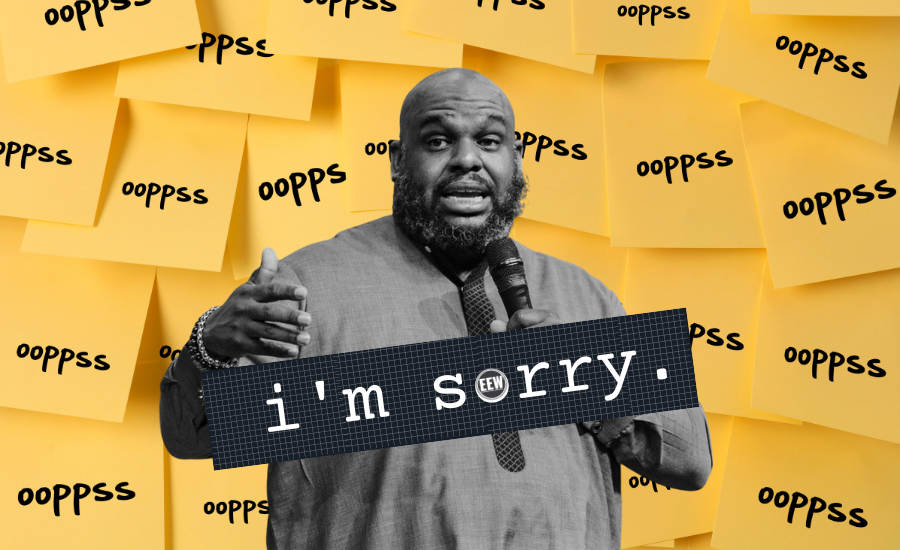Uh-Oh, We've Got Another Health Crisis: Monkeypox infecting men who have sex with men
Credit: A Mokhtari/Getty
By EEW Magazine Health Editors // Public Health
The monkeypox outbreak in more than 70 countries qualifies as a global emergency, the World Health Organization chief said Saturday.
"For the moment this is an outbreak that's concentrated among men who have sex with men, especially those who have multiple partners,” said WHO Director-General, Tedros Adhanom Ghebreyesus. “That means that this is an outbreak that can be stopped with the right strategies in the right groups,”
WHO defines a public health emergency of international concern – or PHEIC –as "an extraordinary event" that constitutes a "public health risk to other States through the international spread of disease" and "to potentially require a coordinated international response."
The head of the World Health Organization, Tedros Adhanom Ghebreyesus, declares monkeypox a public health emergency. (Photo: AP/Illustration: EEW Magazine Online)
While a global emergency is WHO’s highest level of alert, Associated Press reports, the designation does not necessarily mean a disease is particularly transmissible or lethal. Similar declarations were made for the Zika virus in 2016 in Latin America and the ongoing effort to eradicate polio, and the 2014 Ebola outbreak in West Africa.
Tedros made the decision on calling monkeypox a global emergency despite a lack of consensus among experts on the U.N. health agency’s emergency committee, saying he acted as “a tiebreaker.” It was the first time a U.N. health agency chief has unilaterally made such a decision without an expert recommendation.
“We have an outbreak that has spread around the world rapidly through new modes of transmission about which we understand too little,” Tedros said. “I know this has not been an easy or straightforward process and that there are divergent views.”
WHO’s emergencies chief, Dr. Michael Ryan, said the director-general declared monkeypox a global emergency to ensure that the world takes the current outbreaks seriously.
Although monkeypox has been established in parts of central and west Africa for decades, it was not known to spark large outbreaks beyond the continent or to spread widely among people until May, when authorities detected dozens of epidemics in Europe, North America and elsewhere.
WHO’s top monkeypox expert, Dr. Rosamund Lewis, said this week that 99% of all the monkeypox cases beyond Africa were in men and that of those, 98% involved men who have sex with men. Experts suspect the monkeypox outbreaks in Europe and North America were spread via sex at two raves in Belgium and Spain.
Britain recently downgraded its assessment of monkeypox after seeing no signs of widespread transmission beyond men who are gay, bisexual or have sex with other men and noting the disease does not spread easily or cause severe illness.
The U.S. Centers for Disease Control and Prevention said it was “supportive” of WHO’s emergency declaration and hoped it would galvanize international action to stamp out the outbreaks. The U.S. has reported more than 2,800 monkeypox cases and sent more than 370,000 vaccine doses to U.S. states reporting cases.
Some experts had questioned whether such a declaration would help, arguing the disease isn’t severe enough to warrant the attention and that rich countries battling monkeypox already have the funds to do so. Most people recover without needing medical attention, although the lesions may be painful.
Michael Head, a senior research fellow in global health at Southampton University, said WHO’s emergency declaration could help donors like the World Bank make funds available to stop the outbreaks both in the West and in Africa.
In the U.S., some experts have speculated whether monkeypox might be on the verge of becoming an entrenched sexually transmitted disease in the country, like gonorrhea, herpes and HIV.
“The bottom line is we’ve seen a shift in the epidemiology of monkeypox where there’s now widespread, unexpected transmission,” said Dr. Albert Ko, a professor of public health and epidemiology at Yale University. “There are some genetic mutations in the virus that suggest why that may be happening, but we do need a globally-coordinated response to get it under control.”
Ko called for testing to be immediately scaled up, saying there are significant gaps in surveillance.
“The cases we are seeing are just the tip of the iceberg,” he said. “The window has probably closed for us to quickly stop the outbreaks in Europe and the U.S., but it’s not too late to stop monkeypox from causing huge damage to poorer countries without the resources to handle it.”
WHO’s Tedros called for the world to “act together in solidarity” regarding the distribution of treatments, tests and vaccines. for monkeypox. The U.N. agency has previously said it’s working to create a vaccine-sharing mechanism for the most-affected countries, but offered few details of how it might work. Unlike the numerous companies that made COVID-19 vaccines, there is only one maker for the vaccine used against monkeypox, Denmark’s Bavarian Nordic.
The Associated Press contributed to this report.







